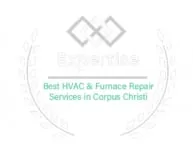CHOOSING THE RIGHT FILTER FOR BEST HOME INDOOR AIR QUALITY

IT’S ALL ABOUT THE AIR FILTER
Besides having the right air conditioner installed for your home by professional AC installers, the best thing to ensure home cooling comfort is your air filter. But when trying to find which air filter to buy, have you been confused? Do you know what the MERV rating of air filters is the right one to buy?
Tommy Cool is here to help! Having provided AC repair and installation across Corpus Christi for decades, our team at Tommy Cool Air (formerly Tommy Cool Air Heating has serviced every type and brand of cooling system. While different units can vary widely, along with what size and type of filter is needed, one thing is always clear – if you don’t have a good, clean filter in place, your whole system is at risk. If you ever need air conditioning repair in the Corpus Christi area, call our team of AC experts at (361) 852-4450.
Not all air filters are built the same. Some filters do a much better job at filtering out harmful air particles. The first step to understanding how to find the best air filter your home needs is by understanding the MERV rating.
DIFFERENT TYPES OF AIR FILTERS
It can be difficult to know exactly which air filter you should get for your system. Beyond getting the right size filter for your unit, you have another option to consider – how well it filters out particles. Different people have different filtering needs. Some people need an expensive high-filtering filter, but other homeowners are fine with a more affordable standard filter.
The most common filter required for home HVAC systems are traditional fiberglass air filters. These are flat filters that are usually pleated, which is the superior design for best air filtration. These filters are assigned a MERV rating. This rating indicates how efficient it is at filtering out dirt and debris.
Understanding Pre-Filters vs. Final Filters in HVAC Systems
In an HVAC system, pre-filters and final filters play distinct yet complementary roles in maintaining air quality and efficiency.
Pre-Filters: The First Line of Defense
-
Purpose: Pre-filters act as the frontline defenders against larger dust particles and debris. They are designed to capture these bigger pollutants before they reach the more delicate stages of filtration.
-
Placement: Installed at the start of the air filtration process, their main job is to protect and extend the life of the final filters.
-
Cost-Effectiveness: Often more affordable than final filters, pre-filters save money by reducing the frequency of replacing the more costly final filters.
Final Filters: The Fine Particle Catchers
-
Purpose: Final filters focus on removing the finer particles from the air. This includes small dust, allergens, and other particulates that pre-filters might miss.
-
Placement: Positioned downstream in the HVAC system, they are used either alone or in tandem with pre-filters, depending on the required air quality.
-
Effectiveness: Operating as the primary filters, final filters ensure a higher standard of air purity, which is crucial for environments that demand exceptional air quality.
The Benefit of a Multi-Filter System
By combining pre-filters with final filters, HVAC systems can achieve optimal performance. The pre-filters capture larger debris, allowing the final filters to concentrate on minute contaminants. This dual-layer setup not only enhances air cleanliness but also extends the life and efficiency of the filters, leading to longer-term cost savings.
In summary, while pre-filters are the preliminary defense against larger airborne particles, final filters specialize in scrubbing the air of smaller, potentially more harmful elements. Together, they ensure an HVAC system runs smoothly, delivering cleaner, healthier air.AIR FILTERS 101: WHAT DOES MERV MEAN?
MERV stands for Minimum Efficiency Reporting Value. MERV ratings typically go from 1 to 16. The higher the number, the more efficient it is – which means the better it stops small particles from getting through to the air you breathe. Most air filters used in homes have MERV ratings between 1 and 4. Typically these lower-rated filters can remove such particles as:
- Pollen
- Dust mites
- Textile and carpet fibers
- Sanding dust
How Air Filtration Enhances Indoor Air Quality and Health: Insights from Research Studies
Air filtration systems play a crucial role in improving both indoor air quality and health, as demonstrated by a variety of research studies. Researchers in India reviewed several studies that explored this connection and found promising results.
-
Microvascular Function Improvement: For elderly individuals, using air filtration to clean recirculated air resulted in enhanced microvascular function. This suggests that cleaner air directly contributes to better circulation and cardiovascular health.
-
Vascular Benefits Across Age Groups: The studies also highlighted improvements in various types of vascular functions among healthy adults. This indicates that the benefits of air filtration extend beyond the elderly to encompass a broader adult population.
-
Enhanced Lung Function: In indigenous communities, air filtration was linked to better lung function. This reinforces the idea that air quality can significantly impact respiratory health, particularly in environments where populations may be exposed to pollutants.
Overall, these findings highlight that integrating air filtration systems can lead to substantial health benefits across multiple demographics by improving vital bodily functions.
Understanding MERV Ratings and Their Implications for Air Filter Performance
When it comes to air filters, the Minimum Efficiency Reporting Value (MERV) rating is a key indicator of how effectively a filter can capture dust and other airborne contaminants. MERV ratings span from 1 to 16, with each increase in the number representing a filter’s improved ability to trap smaller particles.
What Higher Ratings Mean:
-
Low to Moderate Ratings (1-4): These filters are basic and mainly stop larger particles, which makes them suitable for residential use where air quality needs aren’t as stringent.
-
Mid-Range Ratings (5-8): Offering improved performance, these filters are often employed in commercial buildings to effectively capture various pollutants.
-
High Ratings (9-16): At this level, filters capture even finer particles, making them fit for sensitive environments like hospitals and specialized commercial settings.
While MERV ratings cap at 16, it’s important to note that High-Efficiency Particulate Air (HEPA) filters go beyond this range. HEPA filters provide superior filtration, capturing the finest particles and are typically used in surgical suites and laboratories, where the cleanest air is a must.
MERV RATINGS CHART: SMALL & HARMFUL PARTICLES IN YOUR HOME
There are smaller particles that do not get filtered out by those lower MERV rated filters. The size of these microscopic particles is measured in microns. Any sort of particle that is smaller than 10 microns can typically get through most home air filters with MERV ratings of 4 or lower.
Very small particles that are smaller than 10 microns include:
- Mold spores
- Pet dander
- Aerosol spray
People looking for filters that will block the most particles from their indoor air will want one with a MERV rating of 11 or 13. These higher-rated filters will likely cost more money but will be worth the additional cost with the benefits you receive from having much cleaner indoor air.
Different MERV Ratings and Their Applications
Understanding the applications and contaminants associated with various MERV ratings can help you make an informed decision:
-
MERV 2-4:
- Applications: Pre-filters in commercial buildings, residential furnaces, and window air-conditioning units.
- Contaminants: Pollen, dust mites, sanding dust, textile/carpet fibers.
- Particle Size: Filters down to 10.0 microns.
-
MERV 5-8:
- Applications: Ideal for commercial buildings, better residential areas, industrial workplaces, and paint booth inlets.
- Contaminants: Includes those filtered by lower MERV ratings plus mold spores, dust lint, and cement dust.
- Particle Size: Filters down to 3.0–10.0 microns.
-
MERV 9-12:
- Applications: Suitable for hospital laboratories, better commercial buildings, and superior residential environments.
- Contaminants: Captures all from MERV 5-8, plus Legionella, lead dust, humidifier dust, and coal dust.
- Particle Size: Filters down to 1.0–3.0 microns.
-
MERV 13-16:
- Applications: Used in general surgery, superior commercial buildings, and hospital inpatient care.
- Contaminants: In addition to the previous, also filters out bacteria, tobacco smoke, auto fumes, and more.
- Particle Size: Filters down to 0.3–1.0 microns.
-
HEPA:
- Applications: Designed for clean rooms, pharmaceutical manufacturing, and orthopedic surgery rooms.
- Contaminants: Filters virtually everything including virus carriers, carbon dust, sea salt, and microscopic allergens.
- Particle Size: Less than 0.30 microns.
High MERV-rated air filters are especially important for homeowners who have the following situations:
- Have asthma or other respiratory problems
- Have pets
- Smoke, or live with a smoker (including vaping)
- Live in an area with high pollution levels
Anything above MERV 13 is likely not necessary for residential use. Those are extremely efficient filters and intended for facilities that have unique air quality needs, such as medical facilities
Recommended MERV Filters for Airborne Illness Prevention
When it comes to minimizing the transmission of airborne illnesses, choosing the right filter is crucial. Filters are rated using the Minimum Efficiency Reporting Value (MERV) scale, which ranges from 1 to 20. The higher the MERV rating, the more effective the filter is at trapping smaller particles.
MERV-13: The Baseline Standard
- Ideal for Standard Protection: MERV-13 filters are commonly recommended as a baseline for effectively capturing a range of airborne particles, including some that carry viruses and bacteria.
- Captures Fine Particles: They effectively trap dust, pollen, mold spores, and even some virus carriers, significantly improving indoor air quality.
MERV-14 and Higher: Enhanced Filtration
- Superior Performance: For those seeking enhanced protection, MERV-14 filters and above are preferred. These filters are better equipped to catch even smaller particles, including more virus-sized particles, offering superior filtration.
- Preferred in High-Risk Areas: They are often used in healthcare settings or areas requiring stricter air quality control.
Key Considerations
- Installation Feasibility: Ensure your HVAC system can accommodate higher MERV filters, as they may reduce airflow if not suited for your system.
- Maintenance: High-efficiency filters can clog more quickly, so regular checks and timely replacements are essential.
In conclusion, while MERV-13 filters provide substantial protection in many settings, opting for MERV-14 or higher can deliver additional peace of mind where improved air quality is essential. Always consult with a professional to determine the best fit for your specific needs and system capabilities.
What Are the Implications of Using an Air Filter with a Higher MERV Rating Than Recommended for an HVAC System?
Opting for an air filter with a MERV (Minimum Efficiency Reporting Value) rating that exceeds the manufacturer’s advice might seem like a good way to enhance air purification. However, it can have unintended consequences for your HVAC system.
Reduced System Efficiency
A higher MERV rating means tighter filtration, which can create significant airflow resistance. When your HVAC system isn’t designed to cope with this increased resistance, it struggles to pull air through the filter efficiently. This can lead to a decrease in overall system efficiency, meaning your heater or air conditioner may use more energy to maintain desired temperatures.
Lower Indoor Air Quality
Ironically, using a superior-rated filter can actually diminish air quality. When airflow is restricted, your system might not cycle the air with the frequency needed to maintain optimal air quality. This means pollutants could linger longer, counteracting the very purpose of a more sophisticated filter.
Increased Wear and Tear
The strain on your system’s fan increases with higher resistance, accelerating wear and tear. This additional stress can lead to more frequent repairs and potentially shorten the lifespan of your HVAC unit. The costs and inconvenience of these issues often outweigh the supposed benefits of using a higher-rated filter.
In summary, unless your HVAC system is specifically designed for higher MERV filters, sticking to the recommended rating is usually best. This ensures balanced efficiency, air quality, and system longevity.
Can HVAC Operation Strategies Help Prevent the Spread of COVID-19?
Yes, HVAC operation strategies can play a crucial role in reducing the spread of COVID-19 and other airborne illnesses. By optimizing the way commercial HVAC systems function, it’s possible to minimize people’s exposure to pathogens circulating in the air.
How Do HVAC Systems Help?
-
Air Filtering: While the virus responsible for COVID-19 is smaller than 0.3 microns, it often attaches to larger particles that HVAC filters can effectively capture. Enhancing filtration systems can significantly reduce airborne viral particles.
-
Humidity Control: Maintaining optimal humidity levels can also help limit the spread of viruses. Proper humidity settings create an environment less conducive to viral transmission.
-
Automation and Ventilation: Advanced systems can automate airflow adjustments, ensuring the continuous introduction of clean air and improved circulation, further diluting potential contaminants.
By implementing these strategies, HVAC systems can significantly contribute to healthier indoor environments and help curb the transmission of COVID-19.
HOW IS A FILTER’S MERV NUMBER DETERMINED?
How high the MERV rating is for an air filter is determined from a specific process called The Dust Spot Efficiency Test. This test measures how well the filter removes atmospheric dust particles from the air. Most good filters remove at least 90% of air particles.
RELATED FILTER PROBLEMS & AIR QUALITY FAQS
You can learn more about the importance and proper use of an air filter. Check out one of these helpful guides to troubleshoot common AC issues as well as how to prevent big problems from happening.
Why you shouldn’t run an air conditioner without an air filter
Indoor Air Cleaners service & installation in Corpus Christi
Cleaning mold from a filter in a ductless mini split unit
How dirty filters can cause an AC to freeze up
LET TOMMY COOL HELP YOU CLEAR YOUR AIR!
A good, clean air filter is the first step towards ensuring clean air inside your home. Indoor air pollution can be a major problem, so changing your filter regularly is essential. In addition to filters, there are many other great ways to improve your home’s air. Indoor air cleaners and air purifiers can be installed to work with your home’s existing HVAC system to eliminate a whole range of harmful microscopic particles.
Tommy Cool provides Indoor Air Quality services. Call us today at 361-852-4450 to learn more, or you can send us your questions or a request for service by contacting us online.








